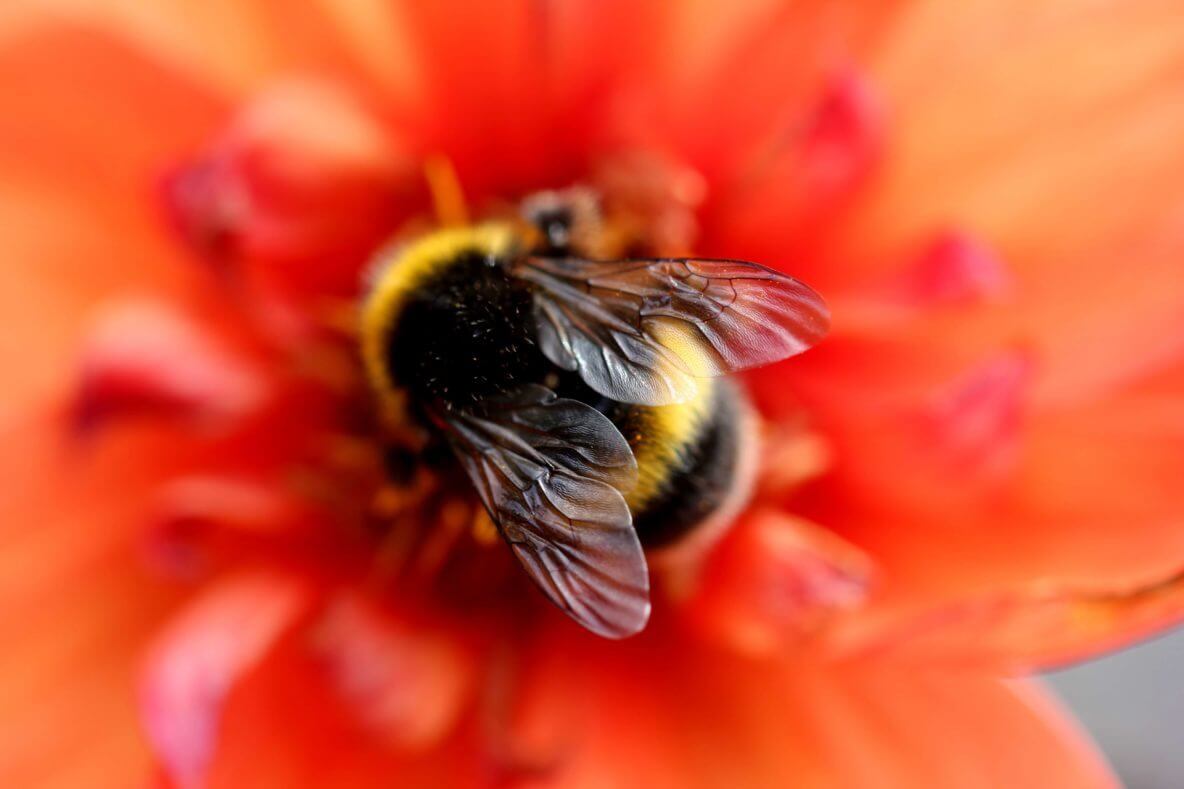
Inhaltsverzeichnis
Denkmuster und Denkweisen: Unser Mindset
Zu den Grundlagen der Achtsamkeit gehören laut der buddhistischen Lehre vier Bereiche, in denen der Mensch die eigene Aufmerksamkeit schulen kann. Diese vier Bereiche sind die Körperwahrnehmung, die Gefühle und deren Wahrnehmung, das Erleben der Gedanken und das Erkennen von Denkmustern. Heute möchte ich mich dem vierten Bereich, also unserem Mindset widmen. Bevor wir im nächsten Blogpost zu konkreten Denkweisen kommen, die auf lange Sicht unser Leben positiv beeinflussen können, möchte ich heute zunächst klären, was wir unter Mindset verstehen und wieso es für uns überhaupt so eine große Rolle spielt.
Ein Gedanke kommt selten allein: Vorurteile, Einstellungen, Grundüberzeugungen, Meinungen oder Assoziationsketten zu bestimmten Personen, Dingen oder Themen wiederholen sich immerzu und bestätigen sich ständig aufs Neue. Bei manchen Gedanken wissen wir von vornherein, dass sie unwahr sind – und trotzdem denken wir sie weiter. Häufig ist das bei Ängsten und der Vorstellung von worst-case-Szenarios der Fall. Oft nehmen wir Dinge persönlich, die andere Menschen gesagt oder getan haben oder über-interpretieren gewisse Situationen. Weil wir keine rational denkenden Wesen sind, sind solche Denkmuster im Prinzip völlig normal.
Wie entstehen Denkmuster? Wofür sind sie gut?
Unser Gehirn verarbeitet in jeder Sekunde unzählige Informationen. Diese Informationen können jedoch nicht alle weitergeleitet und “zu Ende gedacht” werden, da das die Kapazitäten unseres Gehirns übersteigen würde. Daher filtert unser Gehirn all diese Informationen. Es kategorisiert sie und fügt sie zu bereits bestehenden, ähnlichen Assoziationen hinzu oder lässt sie fallen und verarbeitet sie nicht weiter. Unser Gehirn möchte uns durch diesen Filter entlasten. Im Grunde dient der Filter der Sicherung unseres Überlebens. Wir lernen, Situationen adäquat einzuschätzen, um dann angemessen auf diese reagieren zu können.
Ich möchte das an einem Beispiel verdeutlichen: Wenn wir unsere Hand in ein offenes Feuer halten oder diese Situation bei einem anderen Menschen beobachten, lernen wir, dass das keine so gute Idee ist. Unser Gehirn stellt eine Assoziation her; es verknüpft “Feuer + Hand (bzw. Körperteil) = Schmerz / Verbrennung / Lebensbedrohung”. Wir lernen also, dass Feuer für den Menschen bedrohlich sein kann. Wären wir nicht in der Lage, solche Assoziationen zu bilden, wäre eine Situation, in der wir mit Feuer in Berührung kommen, jedes Mal aufs Neue u.U. lebensgefährlich. Wir müssten alles immer und immer wieder lernen und würden so nicht nur auf der Stelle treten, sondern hätten auch extrem geringe Überlebenschancen.
Wieso haben Denkmuster so eine Macht über unser Leben?
Denkmuster helfen uns also dabei, schneller zu agieren und künftige Situationen besser einzuschätzen. Sie entstehen durch die Verknüpfung neuer Informationen zu bereits bestehenden Neuronen-Netzwerken. Nun ist es so: Je öfter ein Neuronen-Netzwerk aktiviert wird, desto leichter lässt sich dieses Netzwerk aktivieren. Mit anderen Worten: Je öfter ein Gedanke gedacht wird, desto schneller denken wir auch in Zukunft diesen Gedanken, weil er uns leichter zugänglich ist als andere Gedanken.
Wenn ich nach einer Niederlage oder einem Fehler denke “Ohje, ich bin echt eine Versagerin; ich wusste dass das nicht klappen würde”, dann denke ich nach der nächsten Situation, die nicht wie geplant gelaufen ist auch eher “Ich bin eine Versagerin…”, als beispielsweise “Das kann passieren. Was kann ich daraus lernen?” – eben weil es bereits bestehende Assoziationen zwischen “Niederlage = schlecht/nicht gut genug = Versagerin” gibt. Und so entstehen letztendlich Denkmuster…
Das macht hoffentlich deutlich, wie wichtig all das ist, was wir von Sekunde zu Sekunde denken und mit welcher Art von Gedanken wir unseren Kopf füllen.
Unser Gehirn ist plastisch
Die gute Nachricht ist, dass das alles nicht funktionieren würde, wenn unser Gehirn nicht veränderbar wäre. Die sogenannte Plastizität unseres Gehirns ermöglicht es uns, neue Assoziationen zu bilden oder gewisse bestehende Assoziationen zu stärken. Wir haben also beste Voraussetzungen dafür, unser Denken und schließlich unser Handeln zu verändern. Wir sind nicht ohnmächtig unseren Gedanken gegenüber. Du selbst kannst beeinflussen, wie du die Welt siehst, was du über dich denkst und wie du dem Leben gegenüberstehen möchtest.
Die “schlechte” Nachricht ist, dass das alles Übung braucht. Wir leben nun schon einige Jahrzehnte auf diesem Planeten und haben womöglich tausend- oder millionenfach dieselben Assoziationsnetzwerke verstärkt. Diese Assoziationen sind daher sehr stabil und unsere Gedankenketten werden nahezu automatisch aktiviert, ohne dass wir es bewusst merken. Das macht es schwer, diese Netzwerke zu verändern. Deswegen müssen wir unser Gehirn wie einen Muskel trainieren, und das braucht Zeit. Genau so, wie wir nicht über Nacht 10 kg verlieren können, können wir auch nicht über Nacht unser Mindset von Null auf Hundert bringen.

Wie können wir unser Mindset ändern?
Wenn du deine Denkweise ändern, alte Muster ablegen möchtest oder ein neues, positives Mindset aufbauen möchtest, ist Achtsamkeit dein bester Freund. Je weiter wir in der Achtsamkeitsübung vorankommen, desto eher ist es möglich, Gedanken los zu lassen, sie nicht weiter zu denken oder sie durch angemesseneres Denken zu ersetzen.
Um dysfunktionale oder negative Kognitionen zu verändern, ist es zunächst notwendig, diese wahrzunehmen. Wir sind im Alltag so in unserem Autopiloten gefangen, dass es anfangs wirklich schwierig sein kann, für uns typische Gedanken und Denkmuster zu identifizieren. Meditation hilft ungemein dabei, die Gedanken zu entschleunigen und sie aus einer Beobachterperspektive wahrzunehmen, ohne sie zu bewerten oder unterdrücken zu müssen. Hier findest du einige Anregungen und Tipps rund ums Meditieren.
Eine gute Übung zur Wahrnehmung der eigenen Denkmuster kann auch Journaling sein. Wenn du deine Gedanken aufs Papier bringst, kannst du schneller identifizieren, welche positiven und dysfunktionalen Gedanken du überhaupt hast.
In einem nächsten Schritt geht es dann darum, diese alten, dysfunktionalen Gedanken in neue, positive Gedanken umzuwandeln um so nach und nach ein neues Mindset aufzubauen. Wie du Grundüberzeugungen umwandeln kannst und welche konkreten Denkweisen dein Leben besser machen können, erfährst du in unserem nächsten Blogpost.
Bis dahin gebe ich dir eine kleine Aufgabe:
Versuche in den nächsten Tagen aktiv deine Gedanken wahrzunehmen. Sage dir zwischendurch “Stopp” und beobachte, was du in den Momenten vor dem Stoppsignal gedacht hast. Wie redest du täglich mit dir? Was sind typische Denkmuster für dich? Du kannst diese Dinge auch gerne am Ende des Tages niederschreiben oder vor dem Schlafengehen im Bett für dich reflektieren.
Versuche hier spielerisch heranzugehen, wie ein kleiner Forscher, der total neugierig ist.
Bitte sei nicht so streng mit dir, wenn du merkst, dass du negativ denkst. Es geht hier nicht darum, den ganzen Tag wie ein Honigkuchenpferd durch die Gegend zu laufen und alles toll finden zu müssen. Versuche deine Gedanken möglichst wertfrei wahrzunehmen. Das Ganze soll dir einen Einblick in deinen Kopf geben und dir helfen, dich selbst besser kennenzulernen.
Wenn du noch mehr über die Themen Achtsamkeit, gesunde Ernährung oder Nachhaltigkeit erfahren möchtest, schaue doch mal hier vorbei.




























Leave a comment
This site is protected by hCaptcha and the hCaptcha Privacy Policy and Terms of Service apply.